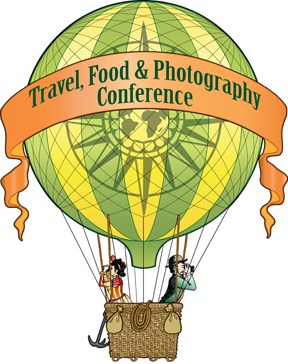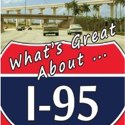
“Little did I know as I started my day shopping for souvenirs that my day would end with London’s finest as a murder suspect”.
We saw Lon’s orange life jacket float down the river. “Where’s Lon?” someone shouted.
The exercise was writing the leading sentence or paragraph of a travel story which is known in newspaper circles as the “lede” (to distinguish the word from the hot metal “lead” that was for many years used to create the type slugs used to layout the paper). The first example was from the instructor but the second and third were from true stories told by students in the class.
Book Passage
The students and faculty at the four day Book Passage Travel, Food & Photography Conference all seem to have stories that need to be told. This is a conference that doesn’t just encourage telling these stories but also teaches newer writers like me how to organize those stories into travel writing.
It was drilled in us that good writing has a point. In the language again of journalism a story has a “nut graph” which can often be found right around here in an article. Catch peoples attention with the lede but then tell them the point of the story and then back that point up with examples. This approach was drilled over and over in us. Spud Hilton, the Travel Editor at the San Francisco Chronicle, said “even reporters at my own paper come up to me and say ‘I am going to Italy, do you want a story?’ I tell them you don’t have a story. You have a ticket.”
“Practice telling your story to your friends. You don’t say ‘The plane landed. We drove from the airport.’ You start with the best part.” Spud instructed in my class on “Writing for Newspaper and Magazines”.
Talking Travel Writing
Amanda Jones, who is a free-lance writer and the second instructor, agreed. “That’s what Mark Twain did”. So we practiced telling stories: over coffee, over dinner, while wine tasting and absinth tasting. Students, faculty and even conference alumni in the evenings gathered and talked and talked and talked.
At Book Passage faculty and students mingle effortlessly. Only the color coded badges indicate which is which. The color coding seemed to be there to aid some pending sorting and refiling. Perhaps only karaoke on Saturday night was able to stop the stories from pouring out.
Even experienced writers like Georgia Hesse, the Founding Travel Editor of the SF Examiner-Chronicle in 1963, has 4 books that she still needs to write. Stories including the one about her families move from England to Wyoming in the late 1800s. A story of the West before sheep ruined the grazing land for cattle. A story that includes murder and scandal. A story that I am sure I would want to read.
I met Georgia while 3 others students and I sat down at a table with her and Jen Leo of the LA Times and had our writing critiqued. We whittled away at prose that was hiding the story like a sculptor dividing the marble into what is art and what is debris. We argued about what was the lede and where had we buried it. We ask questions that had not yet been answered. Some stories, perhaps most stories, come grudgingly.
Out There Where the Ferries Sink
“There is no travel any more, only tourism” someone told Carl Hoffman. That challenge led Carl, the recent author of “The Lunatic Express” on a journey around the world on the worst buses, planes, trains and boats. He purposefully sought out the buses known to fall off cliffs, the planes known to crash, the trains known to pile up and the boats known to sink. Carl thought the story was going to be about the time spent on those particularly avoidable conveyances.
But the story was elsewhere. After 3 weeks of frantic travel he slowed down and discovered the places you can only get to on unreliable buses, rickety planes, dangerous trains and leaky boats. The story was the ship’s engineer in Indonesia, the men who deal with bodies of those killed on the train in Mombai, and the survivor of the ferry in Senegal. The story is not always what you think it is nor always where you expect to find it.
Untold Stories
Tim Cahil has written books and stories about encountering tribes recently discovered in New Guinea. He has traveled into portions of the Congo that unnerved his local pigmy guides and encountered a tribe in Mali that made his body guard run off. But even he has untold stories. He has been to the North Pole but he has not been to Vietnam. As a protester of the war that wound is still too fresh. Some stories may never be told.
It is my hope that armed with some new skills, connected with new contacts, encouraged with new excitement perhaps I will be able to tell a few more of my stories or find a few of yours.
- Buy Travel Insurance
- Search for Great Tours HERE
- Book Your Accommodation HERE
- Get a Car Rental
+Chris Christensen | @chris2x | facebook
Leave a Reply
Tags: article, blogging, travel writing

 Book Review: The Disneyland Book of Lists, by Chris Strodder
Book Review: The Disneyland Book of Lists, by Chris Strodder Book Review: “Under Magnolia” by Frances Mayes
Book Review: “Under Magnolia” by Frances Mayes Book Review: “What’s Great About I-95” by Barbara Barnes
Book Review: “What’s Great About I-95” by Barbara Barnes Learning to Love New York and its Neighborhoods – New York City
Learning to Love New York and its Neighborhoods – New York City
